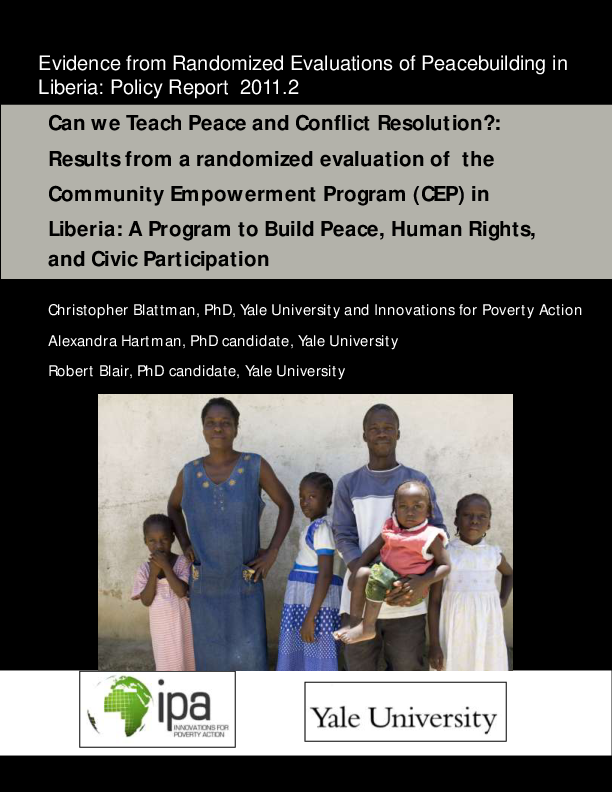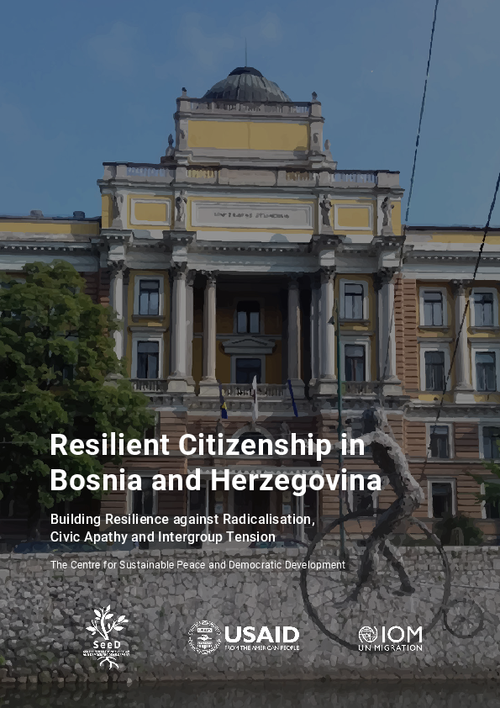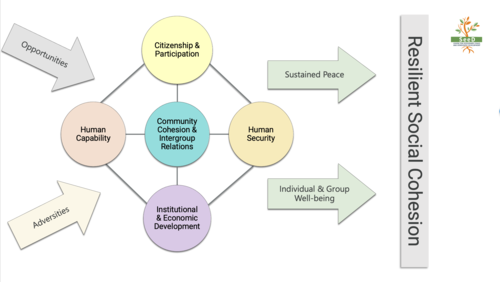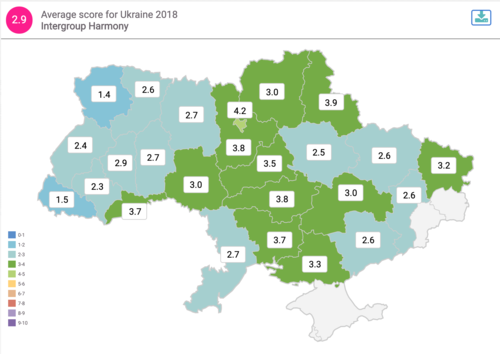Can we teach peace and conflict resolution? Results from a randomized evaluation of the Community Empowerment Program (CEP) in Liberia: A program to build peace, human rights, and civic participation
Key facts
Participation
Orientation towards the common good
Intergroup relations
Cooperation
Summary
How can new democracies and societies emerging from conflict encourage tolerance and dialogue, strengthen conflict resolution systems, and increase understanding of human rights?
Governments and NGOs commonly try to “teach” civic values, conflict resolution, and democratic norms through widespread dialogue, education and information campaigns. But do these dialogue and education programs work as intended? Can education campaigns actually change norms and behaviors and, if so, how?
Dialogue and education campaigns are at the core of Liberia’s present peacebuilding strategy. Many see the absence of reconciliation and the lack of equitable mechanisms for resolving local conflicts as root causes of past and future instability.
To design a response, policymakers need answers to crucial questions: Will dialogue and education work as intended? Could they backfire, and instigate or entrench conflict? Are local bodies equipped to minimize and resolve conflict effectively and non-violently? And can traditional institutions manage this difficult balance between traditional practices and human rights, especially the rights of women, youth, and minorities?

Explore the hub further

Resilient citizenship in Bosnia and Herzegovina: Building resilience against radicalisation, civic apathy and intergroup tension



